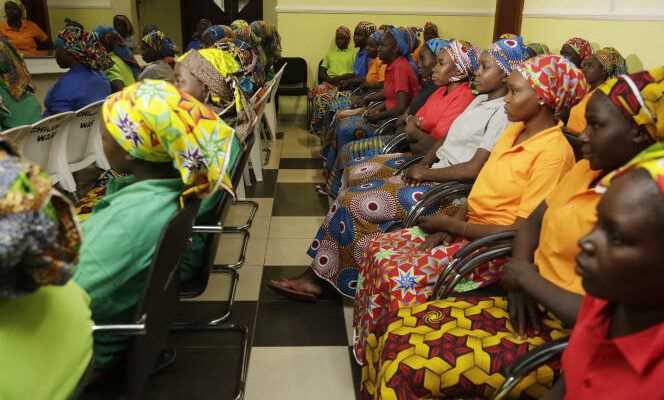One of some 300 young Nigerians kidnapped by Boko Haram from a college in Chibok (northeast) seven years ago is free and has been reunited with her family, the office of the governor of Borno State in Nigeria announced on Saturday (August 7th). .
On April 14, 2014, a hundred jihadists from Boko Haram (a name which means “Western education is a sin”) abducted 276 young girls, aged 12 to 17, from a girls’ college in Chibok, in the Borno State, sparking a huge wave of international outrage and a campaign called #BringBackOurGirls for their release.
Over the years, the majority of the girls have been released or found by the army, but around 100 are still missing, Amnesty International recalled last April, on the seventh anniversary of their kidnapping.
In a statement, Borno State Governor Babagana Umara Zulum said Ruth Ngladar Pogu had come to the military last month along with someone she identified as her husband.
” To keep hope “
“I know the feelings of the families of those who are still in captivity but we must remain hopeful, especially after today’s development”, said the governor.
According to her office, the girl presented herself to the army on July 28, but the news had not been made public to give her time to contact her parents.
Since the rebellion of the radical Islamist group Boko Haram began in 2009 in northeast Nigeria, the conflict, which has spread to neighboring countries, has claimed more than 36,000 lives and three million people have had to flee their homes. home, according to the UN.
Numerous other mass kidnappings have taken place in northern Nigeria from Chibok, leading to the closure of hundreds of schools. Since December, nearly a thousand students have been kidnapped, mainly in the northwestern and central states of the country. Most have been released, but some are still being held after months of captivity.
